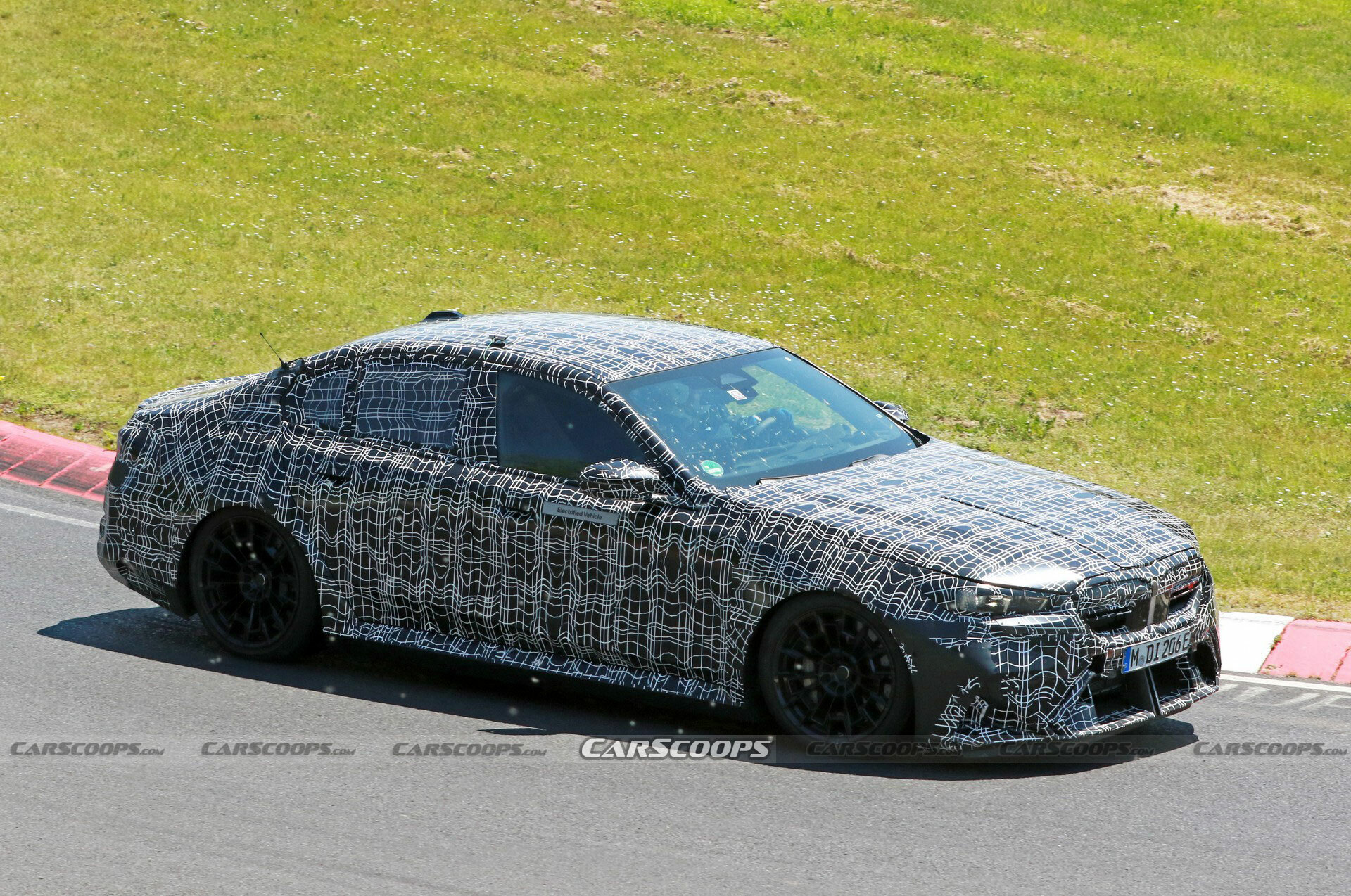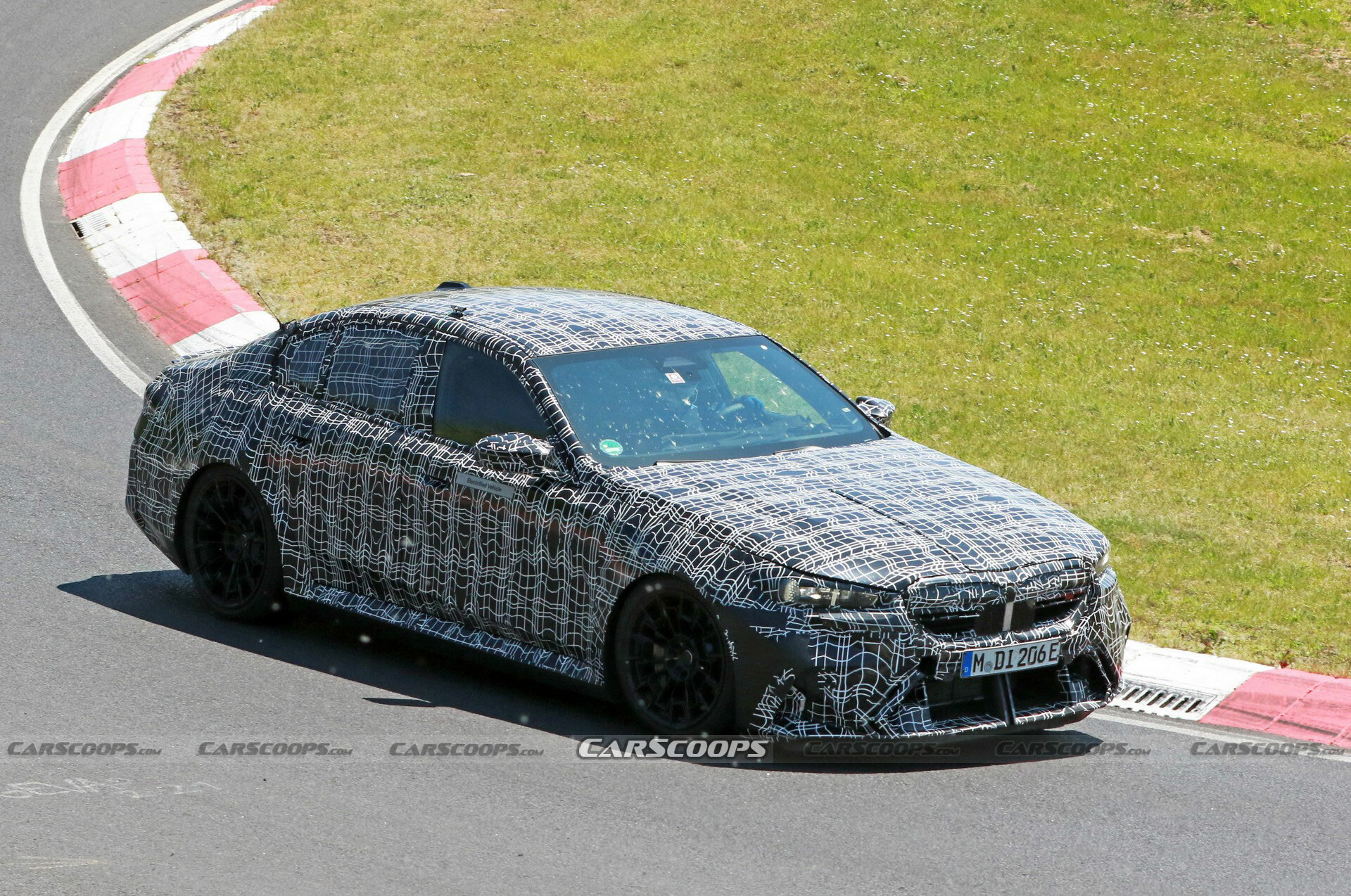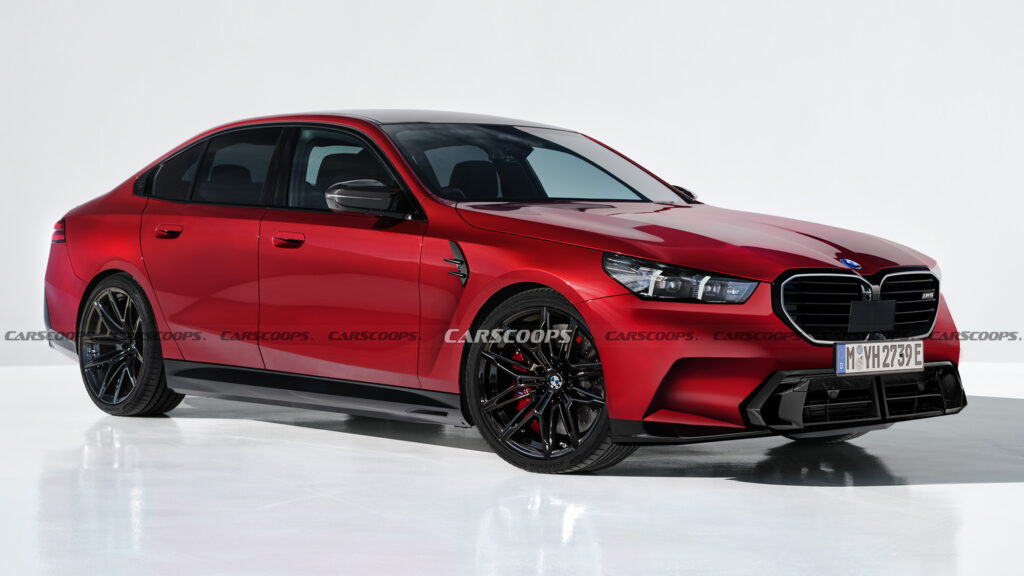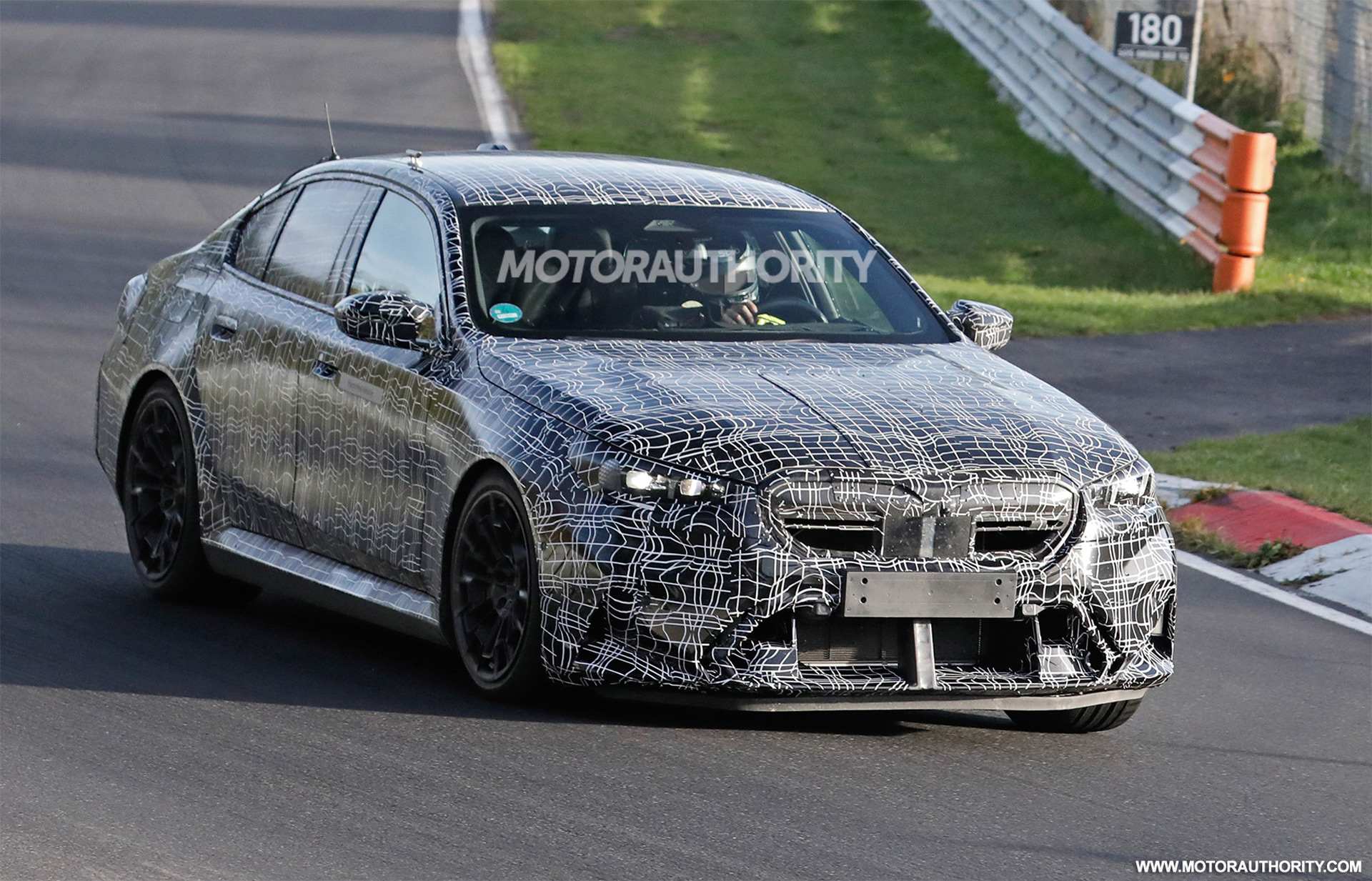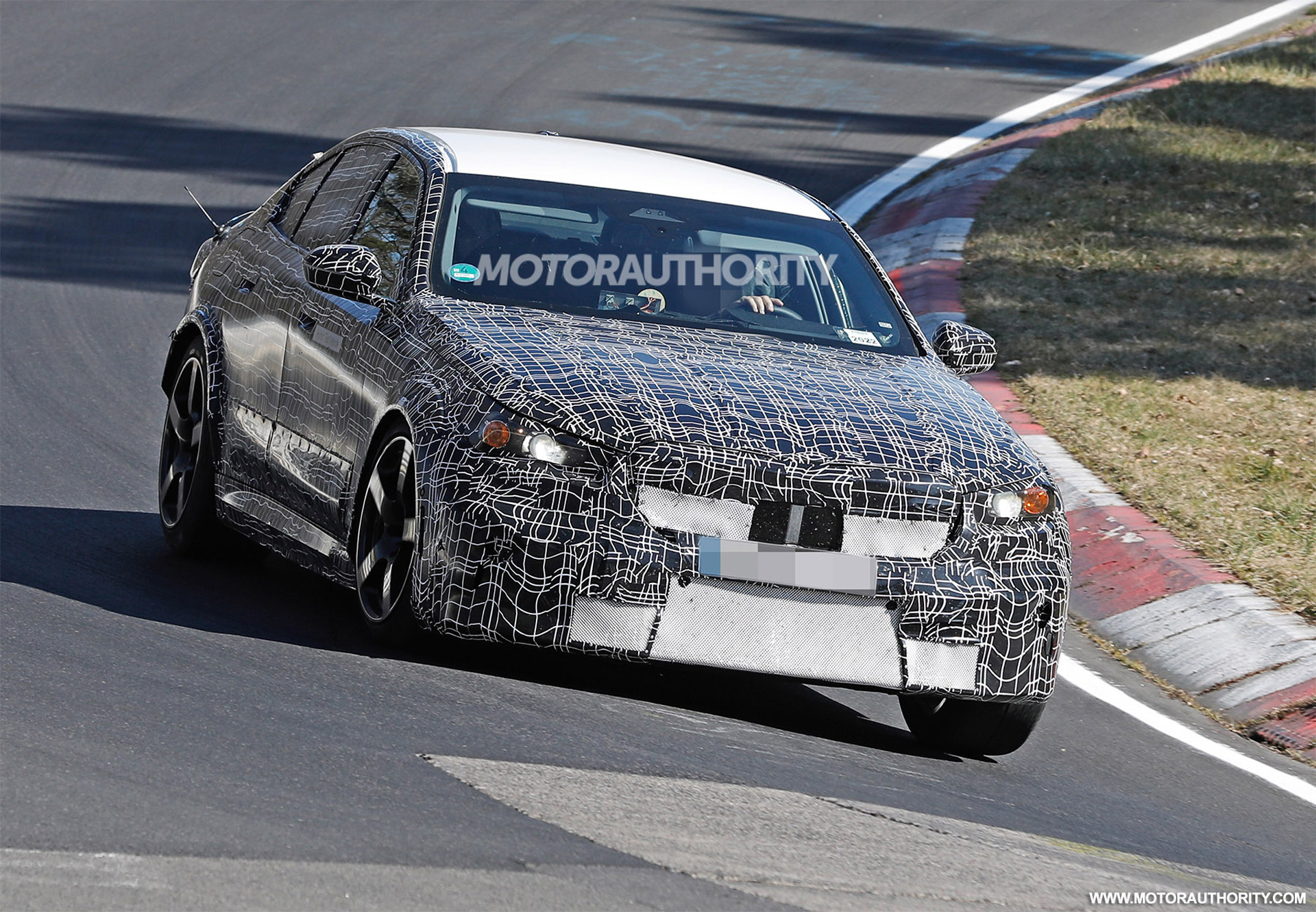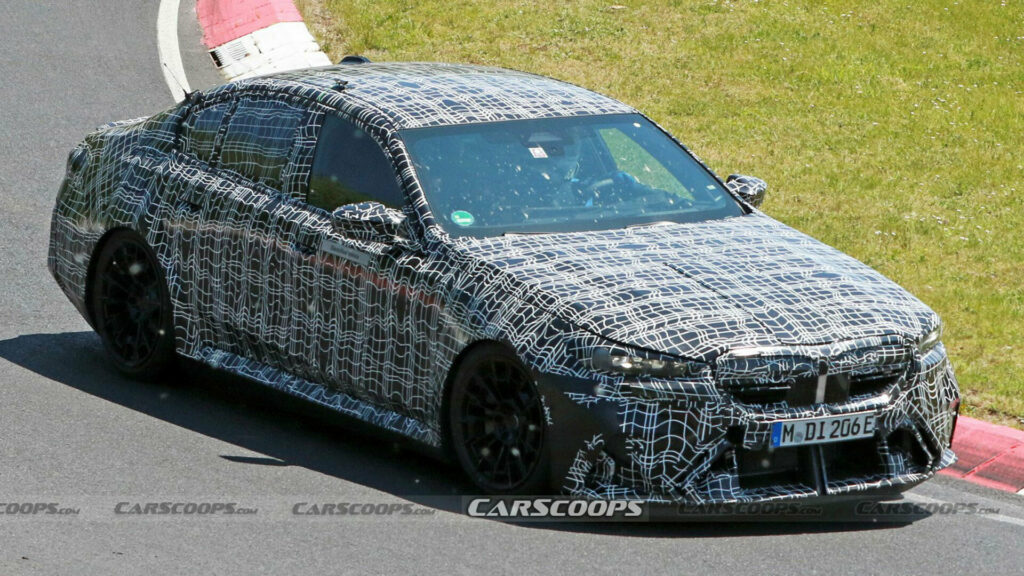
The Elusive Battery: Unraveling the Mystery of the 2025 BMW M5’s Power Source
The automotive world is abuzz with anticipation for the upcoming 2025 BMW M5. Speculation runs rampant about its performance, design, and perhaps most intriguingly, its power source. While BMW has been tight-lipped about the specifics, whispers of an electrified future for the iconic M5 have reached fever pitch.
This article delves into the enigmatic world of the 2025 BMW M5’s battery size, exploring the potential range, performance implications, and the technological hurdles that might be encountered. We’ll examine the factors driving BMW’s decision to electrify the M5, analyze the current battery landscape, and speculate on the likely size and capacity of the battery pack powering this future icon.
The Shift Towards Electrification: A New Era for the M5
The 2025 BMW M5 represents a pivotal moment in the evolution of the brand. The move towards electrification is driven by a confluence of factors:
-
Environmental Concerns: The automotive industry is under increasing pressure to reduce its carbon footprint. Electrification offers a viable pathway to achieve this goal, aligning with BMW’s commitment to sustainability.
-
Government Regulations: Stringent emissions regulations are being implemented globally, pushing automakers towards zero-emission vehicles. The M5, as a flagship model, must comply with these regulations to remain competitive.
-
Technological Advancements: Battery technology has made significant strides, enabling electric vehicles to deliver impressive performance and range. This progress has made electrification a compelling option for even high-performance models like the M5.
-
Market Demand: Consumers are increasingly embracing electric vehicles, drawn by their efficiency, performance, and environmental benefits. BMW recognizes the growing market for electrified performance cars and aims to capitalize on this trend.
The Quest for Performance: Balancing Power and Range
The 2025 BMW M5 is expected to be a hybrid, combining a powerful internal combustion engine with a robust electric motor. This approach aims to deliver the exhilarating performance that M5 enthusiasts crave while achieving acceptable range and efficiency.
The size of the battery pack will play a crucial role in determining the car’s performance characteristics:
-
Power Output: A larger battery can provide more power to the electric motor, contributing to faster acceleration and higher top speeds.
-
Range: A larger battery pack translates to greater range, allowing drivers to cover longer distances without needing to recharge.
-
Weight: A larger battery inevitably adds weight to the vehicle, potentially impacting handling and performance.
Decoding the Battery Size: A Look at the Current Landscape
Predicting the exact battery size of the 2025 BMW M5 is a complex undertaking, but we can draw insights from existing electric and hybrid vehicles in the market:
-
Tesla Model S Plaid: This high-performance electric sedan boasts a 100 kWh battery, delivering a range of over 400 miles and blistering acceleration.
-
Porsche Taycan Turbo S: This electric sports car features a 93.4 kWh battery, achieving a range of over 270 miles and impressive performance.
-
BMW i4 M50: This electric performance sedan boasts a 83.9 kWh battery, providing a range of over 300 miles and a powerful electric motor.
-
Mercedes-AMG EQS 580 4MATIC: This electric luxury sedan utilizes a 107.8 kWh battery, delivering a range of over 470 miles and impressive performance.
These examples highlight the wide range of battery capacities currently available in the market. The 2025 BMW M5 is likely to fall somewhere within this spectrum, depending on BMW’s desired performance and range targets.
The Balancing Act: Optimizing Performance and Efficiency
The challenge for BMW lies in finding the sweet spot between power, range, and weight. A larger battery might offer greater performance and range but could negatively impact the car’s handling and efficiency.
Several factors will influence BMW’s decision:
-
Target Market: BMW needs to cater to the expectations of M5 buyers, who demand both performance and practicality.
-
Competition: The electric performance car market is becoming increasingly competitive, with rivals like Tesla and Porsche pushing the boundaries.
-
Technology Development: Advancements in battery technology, such as increased energy density and faster charging speeds, could influence the final battery size.
Speculation and Predictions: Unraveling the Battery Mystery
Based on the factors discussed above, it is reasonable to speculate that the 2025 BMW M5 will feature a battery pack in the range of 100-120 kWh. This size would provide a balance between performance, range, and weight, allowing the M5 to compete effectively in the high-performance electric car market.
However, it’s important to remember that these are just estimates. BMW could choose to go with a smaller or larger battery depending on their specific goals and the technological landscape at the time of production.
The Future of the M5: A Glimpse into the Electric Era
The 2025 BMW M5 represents a significant departure for the iconic model, embracing the future of electrification while maintaining its legendary performance heritage. The size of the battery pack will be a crucial factor in defining the car’s character, balancing power, range, and efficiency.
While the exact details remain shrouded in secrecy, the 2025 BMW M5 promises to be a thrilling and innovative vehicle, ushering in a new era for the M5 and the automotive industry as a whole. As we eagerly await the official unveiling, one thing is certain: the 2025 BMW M5 will be a force to be reckoned with, pushing the boundaries of performance and technology in the electric era.
